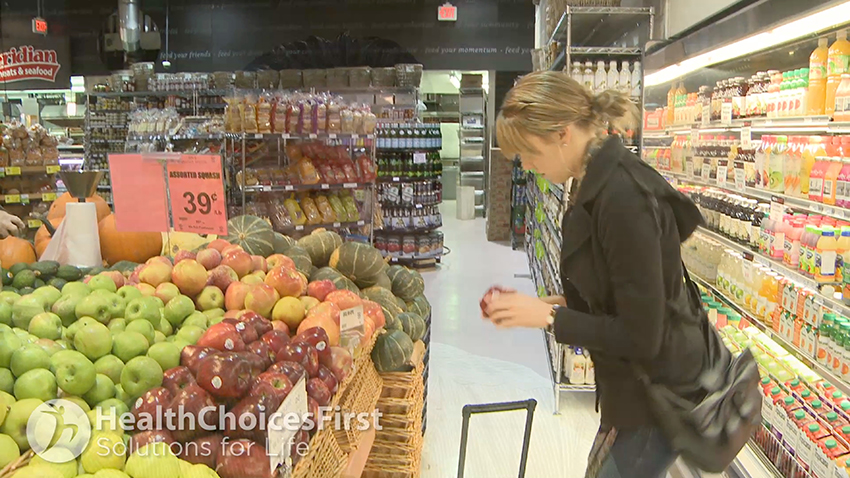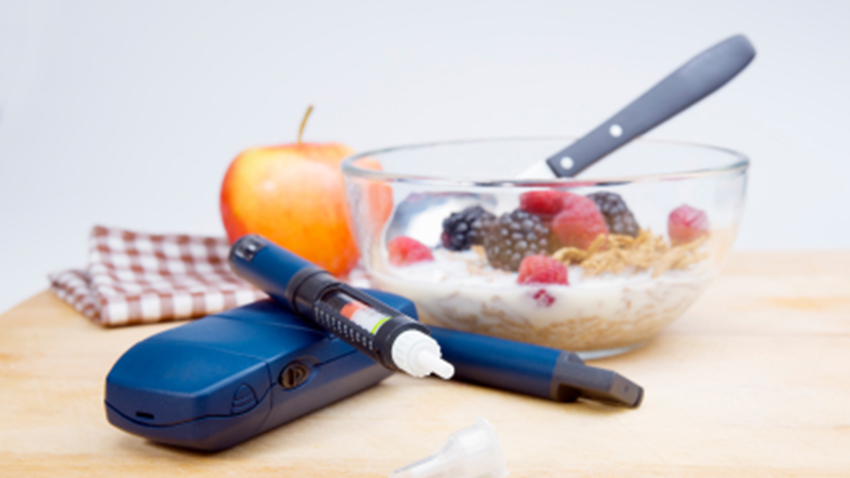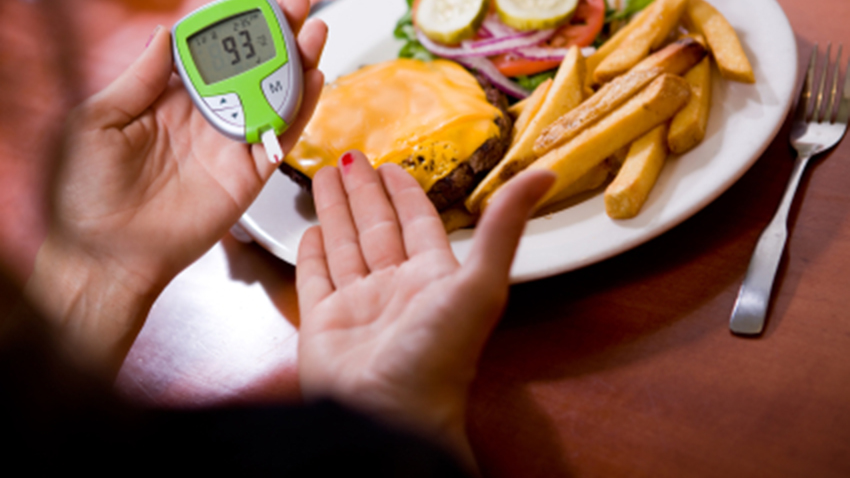Nutrition in Diabetes
Knowledge is Power.
True/False - Quiz: Do You Understand Nutrition in Diabetes?
Information - Nutrition in Diabetes
 If you have diabetes, your doctor will probably recommend that you see a dietitian to create a healthy eating plan, control your blood sugar (glucose), control risk factors for heart disease and manage your weight. When blood glucose levels get too high, it can lead to complications such as hyperglycemia, heart, nerve and kidney damage.
If you have diabetes, your doctor will probably recommend that you see a dietitian to create a healthy eating plan, control your blood sugar (glucose), control risk factors for heart disease and manage your weight. When blood glucose levels get too high, it can lead to complications such as hyperglycemia, heart, nerve and kidney damage.
What is a Diabetes Diet?
There’s no set diabetes diet - it simply means eating healthy foods in moderate amounts at regular mealtimes. You want to eat a diet that’s low in fat and calories and rich in nutrients, including vegetables, fruits and whole grains. Your body can better use the insulin it produces or gets through a medication when you eat three meals a day at regular times. Here are some foods to include in your diabetes diet:
 • Healthy carbohydrates such as fruits, vegetables, legumes, whole grains and low-fat dairy products
• Healthy carbohydrates such as fruits, vegetables, legumes, whole grains and low-fat dairy products
• Heart-healthy fish such as tuna, salmon and mackerel
• Healthy fats that contain monounsaturated or polyunsaturated fats like avocados, olives, walnuts and peanut oils
• Fiber-rich foods including vegetables, fruits, legumes and nuts
When you’re on a diabetes diet, there are some foods to avoid, as they increase your risk of heart disease and stroke. These include:
• Trans fats, found in baked goods, processed foods and shortening
• High-sodium foods
• Foods high in cholesterol like egg yolks and high-fat animal proteins
• Saturated fats in foods such as hot dogs, bacon and high-fat dairy products
Choosing a Diabetes Diet
 There are a few different approaches to diabetes diets. You can work with a dietitian or nutritionist who can help you decide between using the glycemic method, carbohydrate counting, a 7-step meal planning process called the plate method or the exchange lists method. Which diet is right for you depends on your current health, type of diabetes and preference. It’s important to stick to your prescribed diabetes diet to prevent complications and fluctuating blood sugar levels.
There are a few different approaches to diabetes diets. You can work with a dietitian or nutritionist who can help you decide between using the glycemic method, carbohydrate counting, a 7-step meal planning process called the plate method or the exchange lists method. Which diet is right for you depends on your current health, type of diabetes and preference. It’s important to stick to your prescribed diabetes diet to prevent complications and fluctuating blood sugar levels.
Talk to your endocrinologist if you'd like more information on nutrition in diabetes.
Visit HealthChoicesFirst.com for more videos and resources on diabetes.
Print this Action Plan and check off items that you want to discuss with your healthcare provider
-
When blood glucose levels get too high, it can lead to complications such as hyperglycemia, heart, nerve and kidney damage.
-
You want to eat a diet that’s low in fat and calories and rich in nutrients, including vegetables, fruits and whole grains. Your body can better use the insulin it produces or gets through a medication when you eat three meals a day at regular times.
-
Choose healthy carbohydrates, heart-healthy fish, healthy fats that contain monounsaturated or polyunsaturated fats and fiber-rich foods.
-
When you’re on a diabetes diet, there are some foods to avoid, as they increase your risk of heart disease and stroke. These include trans fats, high-sodium foods, high-cholesterol foods and saturated fats.
-
There are a few different approaches to diabetes diets. You can work with a dietitian or nutritionist who can help you decide between using the glycemic method, carbohydrate counting, a 7-step meal planning process called the plate method or the exchange lists method.



